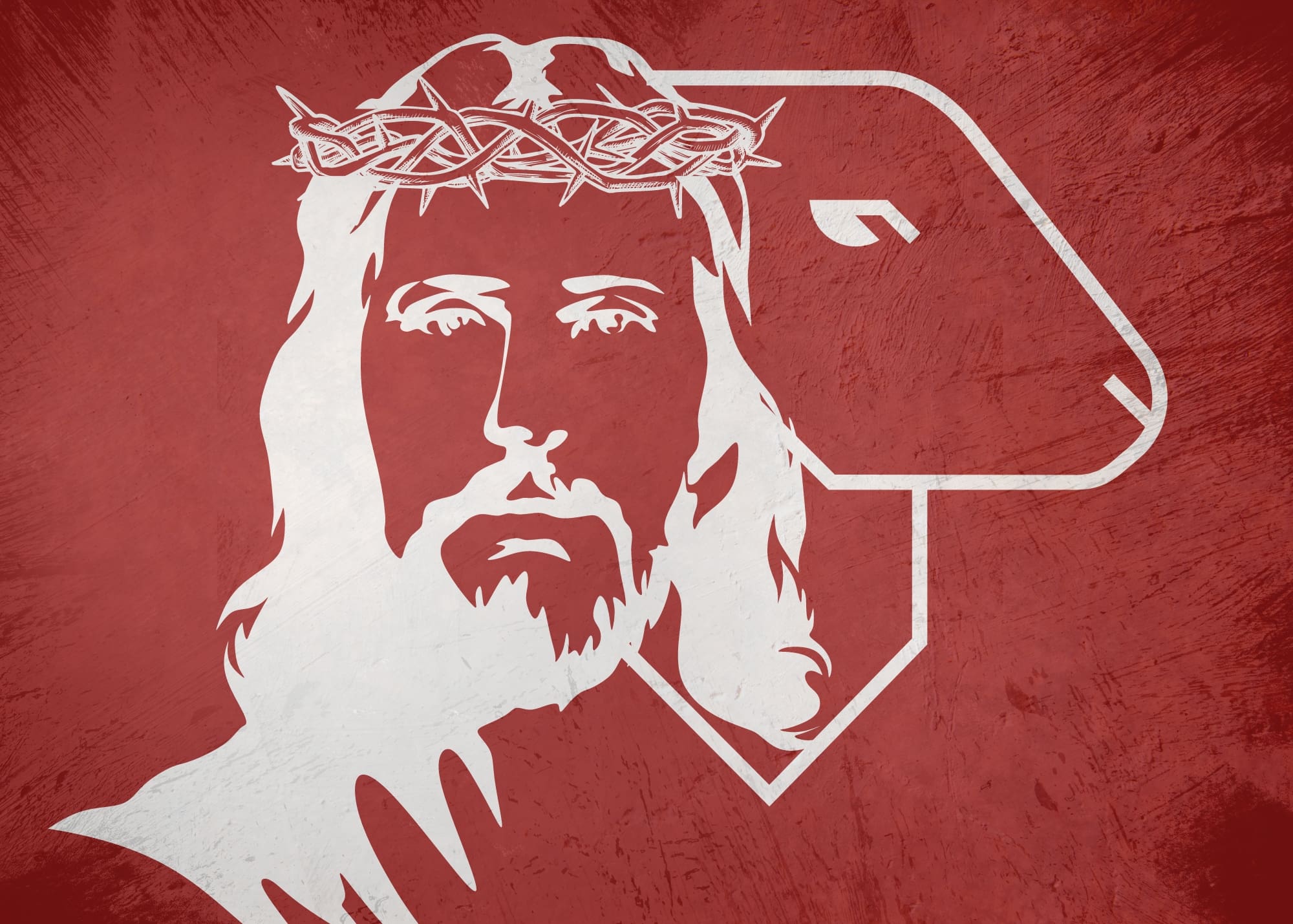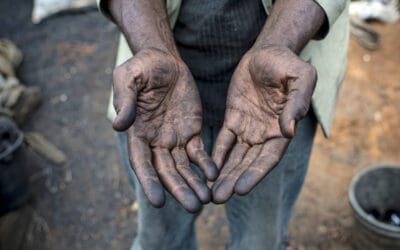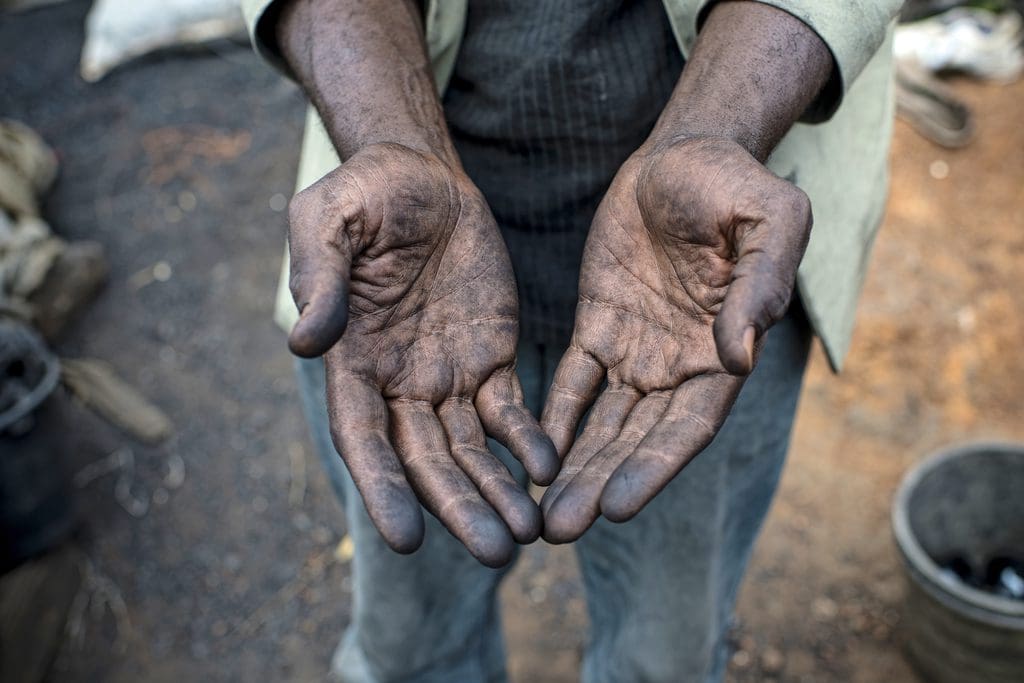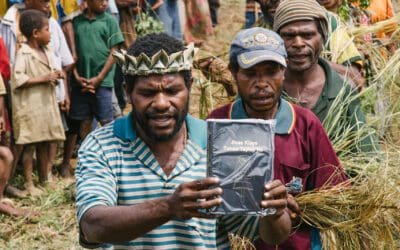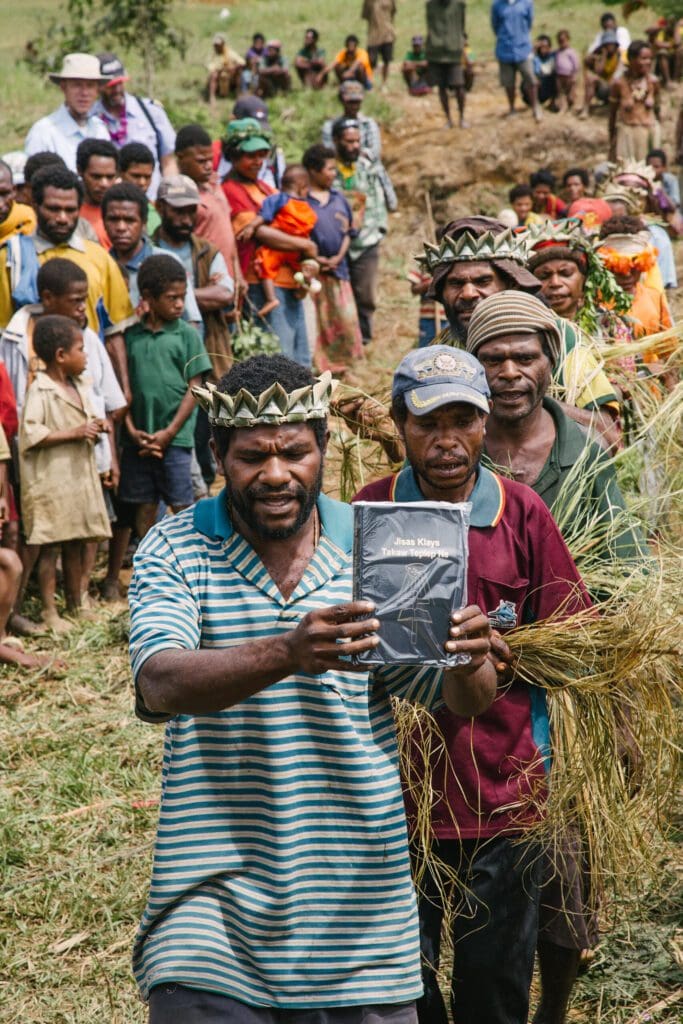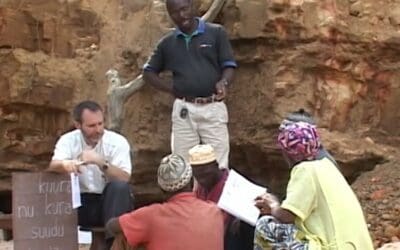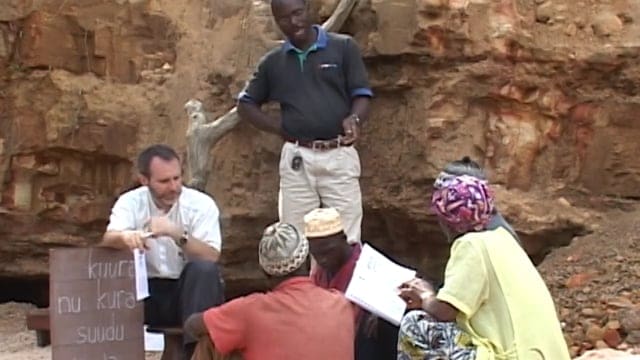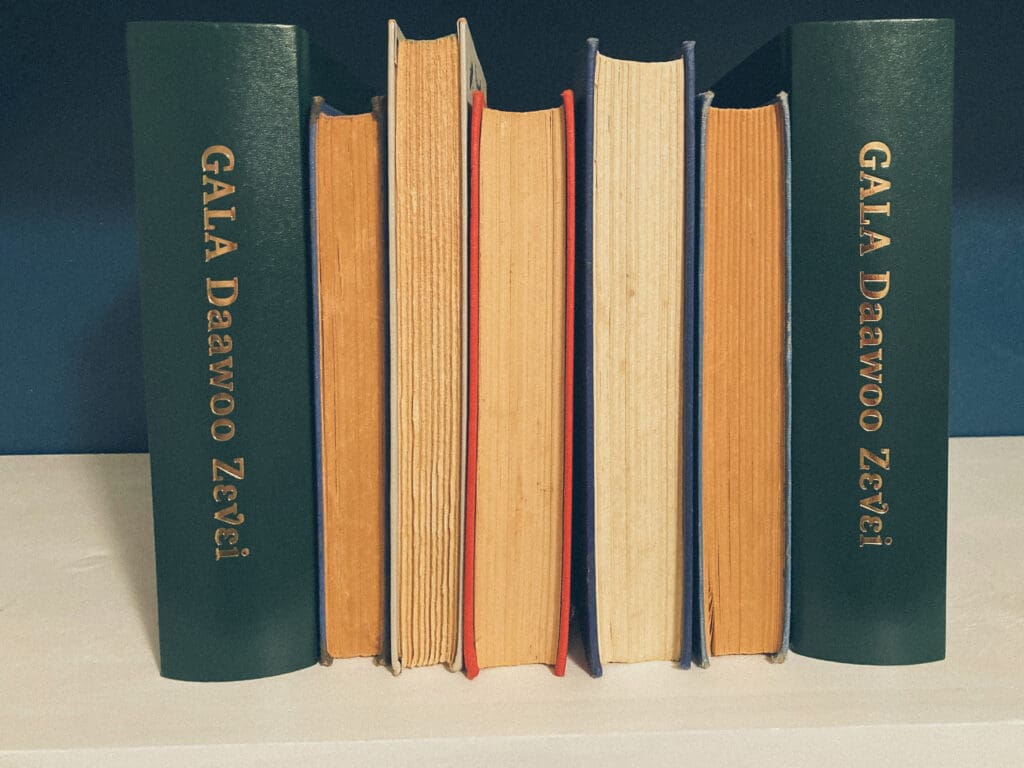What happens when a person dies?
As any Kono person will tell you, when someone dies, there is the problem of blood. Not the blood of the person who passed away, but a blood sacrifice that is needed to ensure that the soul of the deceased will, indeed, make it to God. For the Kono are a very religious people, and there exists, in their belief system, an uncrossable expanse of water between each individual and the Creator God. It is desirable to be with God, and so in life, they carefully follow the traditional practices of their ancestors in order to incur favor on their families and to protect themselves from evil spirits.
But it’s not enough.
Religious practices, carefully observed, are never enough to connect a soul to God, because there remains the problem of blood. To solve this problem, the Kono will offer a sheep or a goat after the death of a family member. The name of this sacrifice is laaɲámɛ̃ɛ̃, which literally means “to skip over the water.” They offer this sacrifice in faith that by doing so, their loved one will pass over the water and enter the presence of God; in other words, they are offering a pass-over sacrifice.
Religious practices, however carefully they are observed, are never enough to connect a soul to God.
By looking intently through this window into their culture, we suddenly have a point of connection, a piece of common ground where we can stand together. We, too, know about a Passover sacrifice — not a passing over water, but a protection of families as the destroying angel passed over the houses before the Israelites’ exodus from Egypt.
With the Kono word laaɲámɛ̃ɛ̃ and the beliefs already present in their culture, the door is open to enter a new word into the Kono vocabulary: laaŋumɛ̃ɛ̃, which means “to skip over the person” instead of skipping over the water.
Then Moses summoned all the elders of Israel and said to them, “Go at once and select the animals for your families and slaughter the Passover lamb. Take a bunch of hyssop, dip it into the blood in the basin and put some of the blood on the top and on both sides of the doorframe.… And when your children ask you, ‘What does this ceremony mean to you?’ then tell them, ‘It is the Passover sacrifice to the Lord, who passed over the houses of the Israelites in Egypt and spared our homes when he struck down the Egyptians.’” (Exodus 11:21-22a; 26-27a)
The truth of mankind’s eternal separation from God and the necessity of a blood sacrifice is already embedded in the Kono culture; the need for a passover lamb makes sense. From this point of understanding, the Gospel can then be shared: Once for all people and for all time, Jesus became our laaŋumɛ̃ɛ̃, the pure, spotless Passover Lamb whose blood bridged the gap between humanity and God.
The sacrifice of our laaŋumɛ̃ɛ̃ on the cross is the answer to the problem of blood. No longer is there an uncrossable separation between God and man — not for the Kono, not for you, and not for me.
For I am convinced that neither death nor life, neither angels nor demons, neither the present nor the future, nor any powers, neither height nor depth, nor anything else in all creation, will be able to separate us from the love of God that is in Christ Jesus our Lord. (Romans 8: 38-39)
As you celebrate Easter, remember the resurrection of our Passover Lamb, our laaŋumɛ̃ɛ̃, and thank God for this window into the Kono culture that will help explain the greatest sacrifice of all: Jesus Christ.
Scripture is from the New International Version. Copyright 1984 by Biblica, Inc. Used by permission. All rights reserved worldwide.
